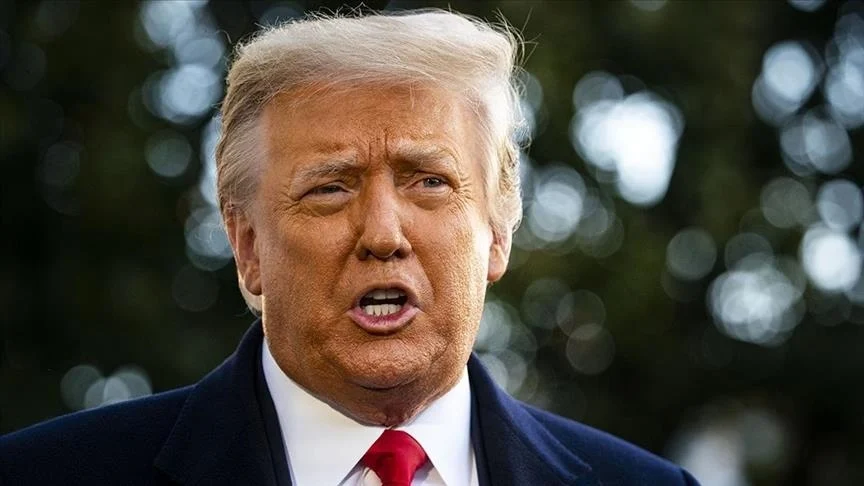The United States is asking some West African countries to accept deported migrants—even those who aren’t from Africa at all.
This is sparking serious concerns. People are worried about crime, instability, and whether these countries are being treated fairly.
Why Is the U.S. Deporting Migrants to West Africa?
The U.S. is reviving a tough immigration policy that started under former President Donald Trump.
It involves sending people out of the country—even if those people don’t have any connection to the country they’re being sent to.
Instead of returning migrants to their home countries (which might be too dangerous), the U.S. is trying to send them to places like:
- Liberia
- Senegal
- Mauritania
- Guinea-Bissau
- Gabon
This policy is called a “safe third-country agreement.” But many say it’s anything but safe or fair.
What Is a Safe Third-Country Agreement?
A “safe third-country” deal means a person who applies for asylum in the U.S. can be sent to another country if the U.S. decides it’s safe for them there.
But here’s the issue: Many of these African countries have no link to the migrants. The migrants may have never lived there, don’t speak the language, and have no family or friends in the region.
The U.S. Supreme Court has already given the green light for this. But critics say it’s just a way of outsourcing immigration problems to poorer nations.
Why Are West African Countries Concerned?
Several African governments are pushing back.
For example, Guinea-Bissau said clearly: We’ll only accept our own citizens.
Meanwhile, Liberia is reportedly getting ready to accept the first batch of deportees. But local leaders and civil society groups are raising alarm bells.
The big worries?
- Crime could rise if people are left jobless and homeless.
- Instability might grow if the public reacts badly.
- Poverty could get worse in already fragile places.
How Is the U.S. Convincing These Countries?
According to reports, the U.S. is using a mix of diplomatic pressure and trade incentives to win support.
In simple terms: They’re offering economic deals or support in return for accepting deportees.
But is the money worth the risk?
Many local experts don’t think so. They warn that the short-term gain isn’t worth the long-term damage.
What Happens Next?
If more countries agree to these deals, migrants with no connection to Africa could be scattered across the region.
These people may arrive with:
- No documents
- No housing
- No legal status
- No jobs
That’s a recipe for desperation, which can lead to more crime, more tension, and more pressure on weak systems.
In the end, this looks less like a solution and more like a ticking time bomb.
Are African Leaders Being Forced to Choose?
Yes, and it’s a tough choice.
Should they:
- Take U.S. money and risk domestic anger?
- Or stand firm and say no, even if it means losing aid?
This is the moral and political dilemma many African leaders now face.
Some worry that if one country gives in, others will follow—and that could open the floodgates.
Why This Matters to Everyone
This issue is about more than migration. It’s about global fairness, national sovereignty, and how powerful countries treat developing ones.
It’s also about what kind of future African nations are building.
Should they be places where people are dumped with no help? Or should they fight for fair treatment on the world stage?
Final Thoughts
The U.S. has a right to manage its immigration policy—but forcing unrelated African nations to take the burden isn’t the answer.
If these deals go forward unchecked, we could see:
- More instability in West Africa
- Worsening poverty
- New security risks
This is a story still unfolding, and the choices made now will shape Africa’s future for years to come.
Read more in our News section or explore related updates in our Politics category.
Q: What is a “safe third-country” immigration policy?
A: It’s a deal where one country (like the U.S.) sends asylum seekers to another country it claims is safe, even if the migrant has no link to that place.
Q: Which African countries are involved in U.S. deportation talks?
A: Liberia, Senegal, Mauritania, Guinea-Bissau, and Gabon are reportedly in talks with the U.S.
Q: Why are people worried about crime and instability in West Africa?
A: Deporting migrants with no support or resources to unfamiliar African countries could cause desperation, poverty, and possibly more crime.
Q: Has any African country rejected the U.S. deportation deal?
A: Yes. Guinea-Bissau said it will only accept its own citizens, not migrants from other nations.
Q: What are the risks for African countries accepting U.S. deportees?
A: These countries could face economic strain, increased crime, public backlash, and a rise in social unrest.




